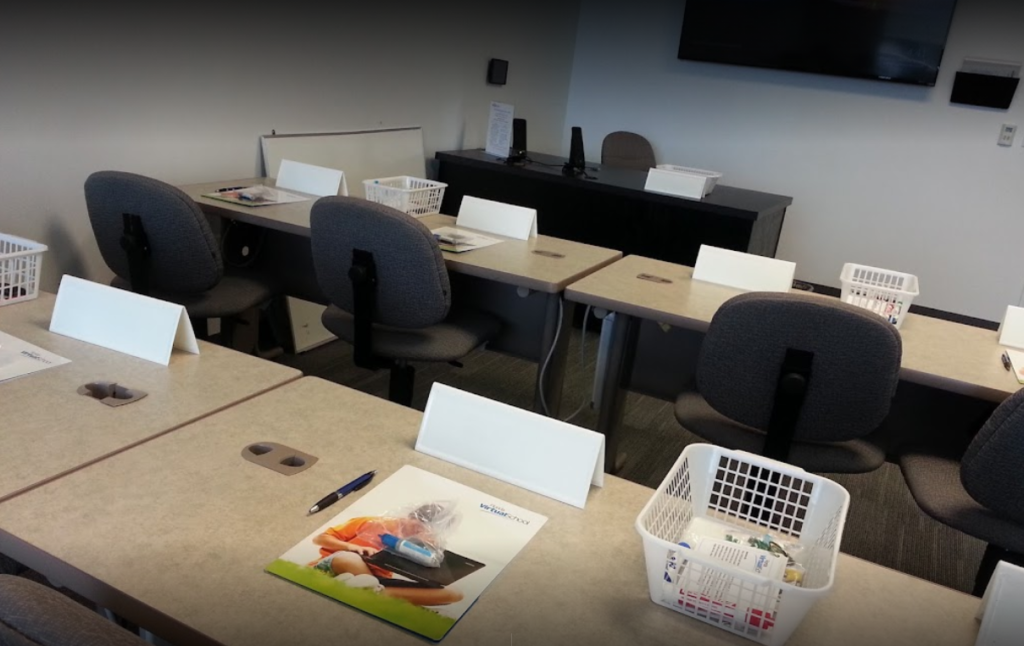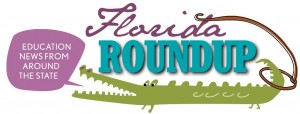 Enrollment at Florida’s statewide public online virtual school is climbing as the coronavirus Delta variant surges amid fall semester school re-openings.
Enrollment at Florida’s statewide public online virtual school is climbing as the coronavirus Delta variant surges amid fall semester school re-openings.
Florida Virtual School is projecting more than 12,300 full-time students for the 2021-22 school year, less than the number who attended during the 2020-21 school year but significantly higher than before the pandemic. FLVS finished the 2019-20 school year with an enrollment of 5,788.
“During the past couple of weeks, we have seen an increase in applications when compared to the beginning of July, and we anticipate this will continue until enrollment closes for FLVS Full Time K-8 this Friday,” said Robin Winder, senior director of instruction for FLVS.
The school’s part-time program, called FLVS Flex, also is seeing increases, though exact numbers are harder to track because students, who are using the program along with another option, are continuously starting new courses at various points in the year.
“We anticipate even more applications as we get closer to the start of the upcoming school year,” FLVS officials said in a news release. “A final student enrollment count will be available once we're closer to the start of the upcoming school year.”
From July 1 to Sept. 30 of last year, FLVS reported a 98% enrollment increase as the number of coronavirus cases climbed in the Sunshine State.
FLVS and other virtual schools had expected more students as summer began and the country began to re-open, but the Delta variant’s rapid spread since last month has been a wild card as parents, especially those whose children aren’t old enough to be vaccinated, find themselves searching for options.
JoAnne Glenn, one of the nation’s top online learning leaders and founder of Pasco eSchool, said enrollment at her school is rising steadily. As of Monday afternoon, enrollment for all grades stood at 1,304, but the district expects those numbers will fluctuate considerably over the next few weeks.
In other parts of the country, parents continue to see virtual education as an option as they prepare to deal with the uncertainty of the coronavirus for another school year.
Texas legislators allowed local school districts to operate online schools to serve their own students but did not provide state funding for them. One north Texas district made a last-minute decision to offer virtual options to students up to sixth grade but not to students in higher grades because they are eligible for vaccination. School officials gave parents 48 hours to enroll their children.
Surveys show most districts aren’t rolling back plans to offer in-person instruction, and some states, like Florida, banned any reduction since the start of the 2020-21 school year.
Burbio, a website that tracks school calendars and re-opens said two-thirds of the nation’s top districts plan to offer stand-alone remote academies this year, though they are not synchronous with in-person classes.
A Brookings Institute survey of more than 1,500 parents showed that 23% of parents planned to stay with remote learning or were unsure about in-person learning in 2021-22. Minority parents – 38% of Black parents and 28% of Hispanic parents – were the most likely to express concerns. Most of those favoring remote learning also tended to be from lower-income households.
Among the survey authors’ recommendations: “If districts offer the option, it must be high quality, which it generally was not in 2020-21. Districts extending remote learning must act upon lessons learned through pandemic school closures, and ideally join forces with other districts so each of the 13,000 U.S. districts don’t need to reinvent the wheel themselves.”
 Medical marijuana: Many Florida school districts are defying the state law that allows students to use prescribed medical marijuana at schools. State law requires all school districts to have a written policy governing medical marijuana. But that same law exempts schools from accommodating on-campus use of medical marijuana. So some districts are choosing to follow federal laws that still classify marijuana use of any kind illegal. “The voters approved keeping it away from schools and prisons," says Mitchell Teitelbaum, attorney for the Manatee County School District. "But the Legislature amended it to allow students to use it. What we need is the state Legislature to provide clarity on what is allowed.” USA Today.
Medical marijuana: Many Florida school districts are defying the state law that allows students to use prescribed medical marijuana at schools. State law requires all school districts to have a written policy governing medical marijuana. But that same law exempts schools from accommodating on-campus use of medical marijuana. So some districts are choosing to follow federal laws that still classify marijuana use of any kind illegal. “The voters approved keeping it away from schools and prisons," says Mitchell Teitelbaum, attorney for the Manatee County School District. "But the Legislature amended it to allow students to use it. What we need is the state Legislature to provide clarity on what is allowed.” USA Today.
School security and more: As more schools open today and this week, districts continue to pull together their security plans, try to fill open teaching positions and refine their objectives for the year. Sun-Sentinel. Miami Herald. Palm Beach Post. Orlando Sentinel. Daily Commercial. Daytona Beach News-Journal. Key West Citizen. Citrus County Chronicle. Palm Beach Post. Sarasota Herald-Tribune. Sarasota Herald-Tribune. Ocala Star-Banner. WFLA. WTSP. Leon County teachers talk about inspiration and offer advice to new teachers. Tallahassee Democrat.
Mental health services: School districts are getting millions of dollars from the state to offer students more mental health services. And while there are questions about student privacy, since they are required to disclose previous mental health issues, experts expect the benefits of the new initiative to be substantial and long-lasting. “It’s fantastic,” says Candice Crawford, president and CEO of the Mental Health Association of Central Florida. “A lot of these children, and especially at-risk kids, tend to end up in the juvenile justice system without ever having been evaluated for mental health issues or given any services. And then people just write them off as bad. The long-term impact of this is going to be remarkable.” Orlando Sentinel. Palm Beach Post. (more…)
Common Core. Gov. Rick Scott signs a suite of bills aimed at responding to the controversy around the standards, as well as a school grading overhaul. Associated Press. News Service of Florida. Reuters. Jeb Bush pushes back against Common Core critics – again– during an appearance in New York. The Buzz.
 Charter schools. Dual enrollment programs at some Miami-Dade charter schools allow students to graduate high school with a more advanced degree already in hand. WLRN.
Charter schools. Dual enrollment programs at some Miami-Dade charter schools allow students to graduate high school with a more advanced degree already in hand. WLRN.
Virtual schools. Pasco eSchool teachers seek relief from large classes. Gradebook.
No Child Left Behind. Officials defend the learning goals in the state Department of Education's strategic plan, which have come under fire from activists. Tampa Tribune. Sentinel School Zone.
Valedictorians. "With honors" and "with distinction" are set to replace the more exclusive honors once bestowed on Bay County high school graduates. Panama City News Herald.
Reading instruction. A shortage of books can be a limiting factor for students. Daytona Beach News-Journal.
Desegregation. StateImpact recalls its early days in Florida.
School safety. A state Representative who sponsored a bill that would have allowed certain school employees to carry guns said he intends to focus on adding resource officers at more campuses. Sarasota Herald-Tribune.
Arts. A private grant helps fund art, music and drama programs for low-income students. Sun-Sentinel. A high school band teacher joins students rallying to preserve a middle school program. Tampa Bay Times.
Transportation. Crowded bus rides to an International Baccalaureate campus are the latest flashpoint in the controversy over Hillsborough's bus system. Tampa Bay Times.
Pay raises. Orange County teachers begin voting on a new contract. School Zone.
Florida school districts are increasingly adapting to a more market-driven public education system. They are aggressively expanding within-district choices via more magnet schools, career academies and dual enrollment programs, and they are grudgingly approving more charter schools. But it’s in online learning where the most significant transformation is occurring.
During the legislative session which begins in January 2012, school districts will be partnering with the Florida Virtual School and private online providers to support legislation making it easier for more families to access online learning. Personalities as diverse as Jim Horne, Florida's former education commissioner, Mark Maxwell, the Florida Virtual School's chief governmental affairs officer, and JoAnne Glenn, assistant principal with the Pasco County, Fla., district's eSchool, have been deliberating in an effort we call the Florida Alliance for Choices in Education, or F.A.C.E. The district online providers have concluded that using regulatory barriers to protect their market share is no longer viable, so they now support expanding the online market in hopes a smaller piece of an expanding pie will increase their enrollment numbers.
Given school districts still control 88 percent of the bricks-and-mortar market, they have shown no interest in abandoning their reliance on regulatory barriers to maintain this market share. But as their enrollment in this realm starts to slip, they will also begin rethinking their bricks-and-mortar strategy. The Miami-Dade school district, for instance, has already begun creating its own charter schools to keep charter school revenue within the district, and several other Florida school districts are expressing interest in following Dade’s lead.
The Berlin Wall in public education is slowing coming down, and as it does school districts are becoming more entrepreneurial and customer-focused. District online educators are ahead of the curve in navigating a more market-driven public education system, but their bricks-and-mortar colleagues are not far behind.